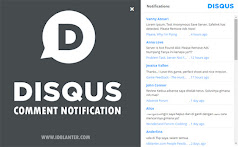A year ago, a number of large and small websites announced a new open standard called OAuth. This standard is designed to provide a secure and privacy-preserving technique for enabling specific private data on one site to be accessed by another site. One popular reason for that type of cross-site access is data portability in areas such as personal health records (such as Google Health or Microsoft Healthvault), as well as social networks (such as OpenSocial enabled sites). I originally became involved in this space in the summer of 2005, when Google started developing a feature called AuthSub, which was one of the pre-cursors of OAuth. That was a proprietary protocol, but one that has been used by hundreds of websites to provide add-on services to Google Account users by getting permission from users to access data in their Google Accounts. In fact, that was the key feature that a few of us used to start the Google Health portability effort back when it was only a prototype project with a few dedicated Googlers.
However, with the development of a common Internet standard in OAuth, we see much greater potential for data portability and secure mash-ups. Today we announced that the gadget platform now supports OAuth, and the interoperability of this standard was demonstrated by new iGoogle gadgets that AOL and MySpace both built to enable users to see their respective AOL or MySpace mailboxes (and other information) while on iGoogle. However, to ensure the user's privacy, this only works after the user has authorized AOL or MySpace to make their data available to the gadget running on iGoogle. We also previously announced that third-party developers can build their own iGoogle gadgets that access the OAuth-enabled APIs for Google applications such as Calendar, Picasa, and Docs. In fact, since both the gadget platform and OAuth technology are open standards, we are working to help other companies who run services similar to iGoogle to enhance them with support for these standards. Once that is in place, these new OAuth-powered gadgets that are available on iGoogle will also work on those other sites, including many of the gadgets that Google offers for its own applications. This provides a platform for some interesting mash-ups. For example, a third-party developer could create a single gadget that uses OAuth to access both Google OAuth-enabled APIs (such as a Gmail user's address book) and MySpace OAuth-enabled APIs (such as a user's friend list) and display a mashup of the combination.
While the combination of OAuth with gadgets is an exciting new use of the technology, most of the use of OAuth is between websites, such as to enable a user of Google Health to allow a clinical trial matching site to access his or her health profile. I previously mentioned that one privacy control provided by OAuth is that it defines a standard way for users to authorize one website to make their data accessible to another website. In addition, OAuth provides a way to do this without the first site needing to reveal the identity of the user -- it simply provides a different opaque security token to each additional website the user wants to share his or her data with. It would allow a mutual fund, for example, to provide an iGoogle gadget to their customers that would run on iGoogle and show the user the value of his or her mutual fund, but without giving Google any unique information about the user, such as a social security number or account number. In the future, maybe we will even see industries like banks use standards such as OAuth to allow their customers to authorize utility companies to perform direct debit from the user's bank account without that person having to actually share his or her bank account number with the utility vendor.
The OAuth community is continuing to enhance this standard and is very interested in having more companies engaged with its development. The OAuth.net website has more details about the current standard, and I maintain a website with advanced information about Google's use of OAuth, including work on integrating OAuth with desktop apps, and integrating with federation standards such as OpenID and SAML. If you're interested in engaging with the OAuth community, please get in touch with us.






.jpg)


Warning !!!
=> Mohon memberikan komentar yang sopan dan ramah,
=> YOKO LIEM berhak menghapus komentar spam, komentar yang berisi link, atau komentar yang tidak senonoh,
=> YOKO LIEM sangat menghargai keramahan komentar Anda,
=> YOKO LIEM akan berusaha untuk menanggapi komentar Anda dan mengunjungi balik,
Terima kasih sudah berkunjung ^_^
`````Jika anda tidak belajar mencintai diri sendiri terlebih dahulu anda tidak bisa mencintai orang lain`````